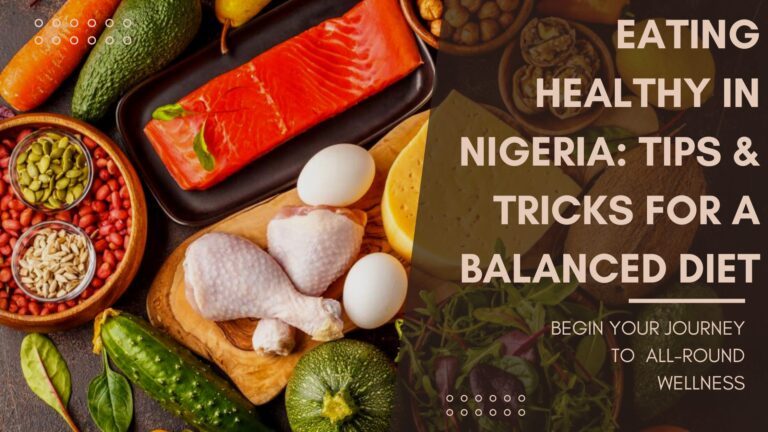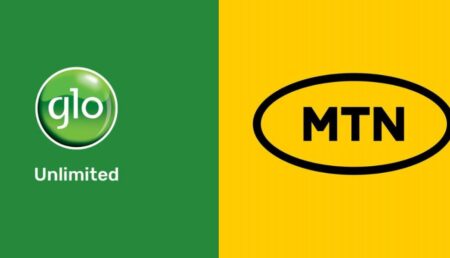Eating healthy in Nigeria can be a challenge. As Nigerians, we pride ourselves in consuming, perhaps too many fried and roadside foods, too. The presence of traffic food like gala and Coca-Cola or Pepsi makes it difficult to build a balanced diet. Don’t get me started on the “rice curse”. At least 10 in every 10 Lagosians eat rice every day- probably for breakfast, lunch, and dinner.
Then for a change, we opt for Indomie or spaghetti to instantly quiet the hunger. Then we wonder why we always feel tired and exhausted in the morning. Although majority of Nigerians suffer from poor diet, all hope is not lost. You can redeem your diet with the right knowledge and resources.
And no! you don’t need to adapt foreign foods into your food schedule to eat healthily in Nigeria. With our local foods, you can create a healthy diet for yourself. Learn about local foods that make up a balanced diet, explore tips for budgeting and meal planning, and discover how to shop for healthy ingredients on a budget.
Understand Your Caloric and Nutritional Needs.

The first step to eating healthy in Nigeria is understanding your caloric and nutritional needs. Different metabolic rates mean that people will need different amounts of energy and nutrients each day, so it’s important to speak to a medical professional before starting any new dietary plan.
It’s not advisable to blindly follow a dietary plan from anyone- especially a Caucasian influencer. The reason is that Caucasians may require different nutrients than Nigerians, due to genetic differences in nutrient absorption and metabolism. Knowing how many calories and which nutrients you require can help you make informed food choices for a balanced diet.
Consider Balanced Meal Plans Based on Nigerian Dishes.

Finding Nigerian food sources that provide a good balance of macronutrients and micronutrients can help you maintain your health while giving you the opportunity to enjoy traditional dishes.
Popular Nigerian dishes like jollof rice, plantains, and vegetable soup are often rich in vitamins and minerals. Try planning meals based on traditional recipes that contain a mix of lean proteins, complex carbohydrates, and healthy fats for a balanced meal.
Beans, Skinless Chicken and Turkey, Egg White, and Greek Yoghurt are good examples of lean protein foods. For optimal nutrition, you should also strive for at least 5 servings of fruits and vegetables per day.
Incorporate Fruits and Vegetables Into Your Diet.

Eating a variety of fruits and vegetables is important for keeping your body nourished with vitamins and minerals that traditional Nigerian meals may not provide. Try to get in the habit of buying different types of produce on each shopping trip, such as tomatoes, bell peppers, sweet potatoes, spinach, apples, oranges, and bananas.
For starters, you can try to eat an Apple daily. Then as you get consistent with it, you can move to eat any other type of fruit of your choice. Also, increase how often you consume fruits. If you can’t seem to build a habit out of eating fruit, feel free to convert them into smoothies or juices.
You can either DIY these smoothies or juice them by yourself. Or, you could buy from a supermarket like Spa or from a reliable seller in Nigeria. Smoothies are usually perfect for a quick liquid snack as it’s pumped full of essential nutrients!
Include Local Produce Whenever Possible.
Eating locally sourced foods is an incredibly important part of eating healthy in Nigeria. Not only will it help you become more connected to the land and people of Nigeria, but it can also be beneficial for your health.
Local produce usually contains higher amounts of vitamins, minerals, and antioxidants than if they were purchased from abroad. Look to fruits like pineapple or custard apple, vegetables like okra or yam, beans like soybeans or common beans, and spices such as cloves or chili peppers to benefit from the nutrient-dense produce that Nigeria has to offer!
Gluten-Free Grains And Healthy Dairy Alternatives Work Wonders.

When you live in Nigeria, you’ll realize that it can be tough to find gluten-free meals. That’s because bread and all Gluten loaded food sources tend to be our first resort. However, if you have allergies and sensitivities, it’s important to be aware of the ingredients and grains you consume.
Gluten-free foods, like rice, all types of swallow and soup, coconut flour, kunu drink, and plantain can easily be incorporated into meals.
Additionally, there is a variety of healthy dairy alternatives like coconut milk, oat milk, almond milk, soy milk, and more that can be added to recipes instead of traditional dairy products. Incorporating such ingredients will help you stay healthy while still being able to enjoy delicious dishes!
Conclusion

Trust me; if you play your cards right, you can eat healthily and still enjoy the goodness of street food in Nigeria. I totally understand that “Iya Monsurat’s” Akara and Fried Yam is irresistible- especially when she tops it with her delicious fried stew.
However, you should try to limit how often you consume certain foods to keep your body in a healthy state. You won’t only achieve wellness by hitting the gym. What goes into your body matters too. Hopefully, you’ll maintain a healthy diet with our tips to eating healthy in Nigeria.










